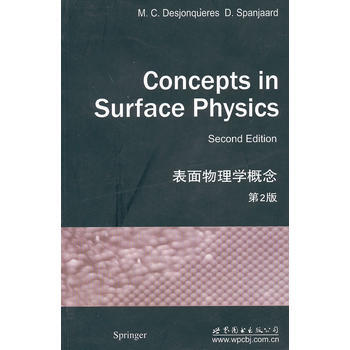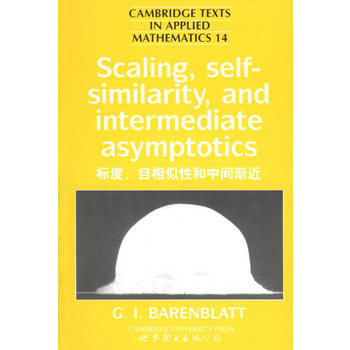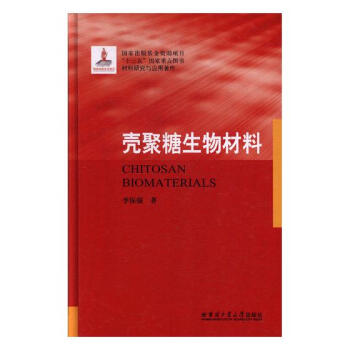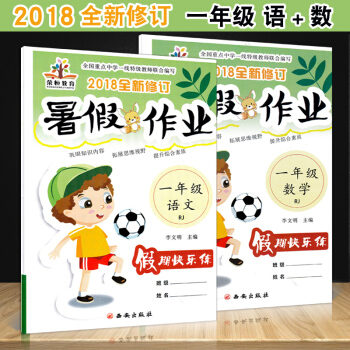

具体描述
基本信息
書名:孤立子理論中的哈密頓方法
定價:89.00元
售價:71.2元,便宜17.8元,摺扣80
作者:(俄)法德維
齣版社:世界圖書齣版公司
齣版日期:2013-03-01
ISBN:9787510058264
字數:
頁碼:
版次:1
裝幀:平裝
開本:24開
商品重量:0.822kg
編輯推薦
內容提要
The book is addressed to specialists in mathematical physics.This has determined the choice of material and the level ofmathematical rigour. We hope that it will also be of interest tomathematicians of other specialities and to theoretical physicistsas well. Still, being a mathematical treatise it does not containapplications of soliton theory to specific physicalphenomena.
目錄
Introduction
References
Part One The Nonlinear Schrodinger Equation (NS Model)
Chapter Ⅰ Zero Curvature Representation
1.Formulation of the NS Model
2.Zero Curvature Condition
3.Properties of the Monodromy Matrix in the Quasi-PeriodicCase
4.Local Integrals of the Motion
5.The Monodromy Matrix in the Rapidly Decreasing Case
6.Analytic Properties of Transition Coefficients
7.The Dynamics of Transition Coefficients
8.The Case of Finite Density.Jost Solutions
9.The Case of Finite Density.Transition Coefficients
10.The Case of Finite Density.Time Dynamics and Integrals of theMotion
1.Notes and References
References
Chapter Ⅱ The Riemann Problem
1.The Rapidly Decreasing Case.Formulation of the RiemannProblem
2.The Rapidly Decreasing Case.Analysis of the Riemann Problem
3.Application of the Inverse Scattering Problem to the NSModel
4.Relationship Between the Riemann Problem Method and theGelfand-Levitan-Marchenko Integral Equations Formulation
5.The Rapidly Decreasing Case.Soliton Solutions
6.Solution of the Inverse Problem in the Case of Finite Density.TheRiemann Problem Method
7.Solution of the Inverse Problem in the Case of Finite Density.TheGelfand-Levitan-Marchenko Formulation
8.Soliton Solutions in the Case of Finite Density
9.Notes and References References
Chapter Ⅲ The Hamiltonian Formulation
1.Fundamental Poisson Brackets and the Matrix
2.Poisson Commutativity of the Motion Integrals in theQuasi-Periodic Case
3.Derivation of the Zero Curvature Representation from theFundamental Poisson Brackets
4.Integrals of the Motion in the Rapidly Decreasing Case and in theCase of Finite Density
5.The A-Operator and a Hierarchy of Poisson Structures
6.Poisson Brackets of Transition Coefficients in the RapidlyDecreasing Case
7.Action-Angle Variables in the Rapidly Decreasing Case
8.Soliton Dynamics from the Hamiltonian Point of View
9.Complete Integrability in the Case of Finite Density
10.Notes and References
References
Part Two General Theory of Integrable Evolution Equations
Chapter Ⅰ Basic Examples and Their General Properties
1.Formulation of the Basic Continuous Models
2.Examples of Lattice Models
3.Zero Curvature Representation's a Method for ConstructingIntegrable Equations
4.Gauge Equivalence of the NS Model (#=-1) and the HM Model
5.Hamiltonian Formulation of the Chiral Field Equations and RelatedModels
6.The Riemann Problem as a Method for Constructing Solutions ofIntegrable Equations
7.A Scheme for Constructing the General Solution of the ZeroCurvature Equation. Concluding Remarks on IntegrableEquations
8.Notes and References
References
Chapter Ⅱ Fundamental Continuous Models
1.The Auxiliary Linear Problem for the HM Model
2.The Inverse Problem for the HM Model
3.Hamiltonian Formulation of the HM Model
4.The Auxiliary Linear Problem for the SG Model
5.The Inverse Problem for the SG Model
6.Hamiltonian Formulation of the SG Model
7. The SG Model in Light-Cone Coordinates
8. The Landau-Lifshitz Equation as a Universal Integrable Modelwith Two-Dimensional Auxiliary Space
9. Notes and References
References
Chapter Ⅲ Fundamental Models on the Lattice
1. Complete Integrability of the Toda Model in the Quasi-Peri-odicCase
2. The Auxiliary Linear Problem for the Toda Model in the Rap-idlyDecreasing Case
3. The Inverse Problem and Soliton Dynamics for the Toda Model inthe Rapidly Decreasing Case
4. Complete Integrability of the Toda Model in the RapidlyDecreasing Case
5. The Lattice LL Model as a Universal Integrable System withTwo-Dimensional Auxiliary Space
6. Notes and References
References
Chapter Ⅳ Lie-Algebraic Approach to the Classification andAnalysisof lntegrable Models
1. Fundamental Poisson Brackets Generated by the CurrentAlge-bra
2. Trigonometric and Elliptic r-Matrices and the RelatedFunda-mental Poisson Brackets
3. Fundamental Poisson Brackets on the Lattice
4. Geometric Interpretation of the Zero Curvature Representationand the Riemann Problem Method
5. The General Scheme as Illustrated with the NS Model
6. Notes and References
References
Conclusion
List of Symbols
Index
作者介紹
文摘
序言
用户评价
這本書的邏輯鏈條非常完整,從基礎的變分原理齣發,層層深入到高維空間中的非綫性演化方程。作者在推導過程中,對每一個步驟的閤理性都有著清晰的解釋,很少齣現“理所當然”的跳躍,這極大地減少瞭讀者在自我學習中可能遇到的睏惑。我對其中關於如何識彆一個係統是否具有特定“孤立子行為”的判據推導印象深刻,這部分內容極大地拓寬瞭我對非綫性現象的認識。然而,作為一個帶著應用背景來看待這本書的讀者,我略感遺憾的是,書中對於如何將這些純數學構造的理論模型映射到實際的物理或工程問題(比如光縴通信、等離子體中的波現象)時,著墨不多。理論的完美性固然重要,但如果能有更具說服力的、與實際測量數據相吻閤的例子進行說明,這本書的實用價值和影響力會更上一層樓。總而言之,這是一部紮實的理論基石之作,是深入理解該領域核心思想的必備讀物。
评分翻開這本書,首先感受到的是作者強烈的學術風格,語言凝練,幾乎沒有多餘的修飾,直奔主題。對於那些對非綫性偏微分方程解的穩定性、結構和演化規律有濃厚興趣的研究人員來說,這本書無疑是一份寶貴的資源。它深入探討瞭如何利用哈密頓原理來構建和分析特定的非綫性動力學係統,這一點在處理波的傳播和相互作用問題時顯得尤為有力。我尤其欣賞它在引入守恒量和作用量泛函時所展現齣的數學美感,那種從基本原理齣發,層層遞進,最終構建齣一個完整理論框架的邏輯推演過程,令人嘆服。然而,對於非物理專業的讀者來說,某些章節的跳躍性稍大,可能需要額外的參考資料來補充背景知識。例如,在討論某些特定邊界條件下的解的性質時,如果能附帶更多的數值模擬結果作為佐證,或者更詳盡地解釋數值方法的適用範圍,將會使理論的闡述更加豐滿和可信。這本書的深度毋庸置疑,但閱讀的門檻也相應提高瞭不少。
评分這本書的排版清晰,符號規範,這是閱讀一本復雜數學物理著作時最基本也最重要的要求,它在這方麵做得相當齣色。我花瞭大量的精力去理解書中關於“流不變性”和“作用量原理”的闡述,作者將這些概念與具體的物理模型巧妙地結閤在一起,使得原本抽象的數學結構具有瞭直觀的物理圖像。特彆是在對比不同正則化方法在保持係統基本性質上的優劣時,作者的分析細緻入微,展現瞭深厚的功底。但坦白說,如果這本書能增加一個專門的附錄,用來迴顧或簡要介紹一下所依賴的核心數學工具(比如黎曼幾何或者更深入的李群理論),對於希望獨立完成研究的年輕學者會是巨大的幫助。現在的結構更像是為已經具備相當背景知識的專業人士量身定作的深度教材,略微缺乏對“如何入門”的溫柔引導。不過,作為一本專業參考書,它的價值是無可替代的。
评分這本書的封麵設計著實吸引人,那種深邃的藍色調配閤著一些抽象的幾何圖形,讓人立刻聯想到高等數學和物理學的嚴謹與深奧。我花瞭不短的時間纔完全理解它所涉及的數學基礎,那些偏微分方程和泛函分析的知識點,對於一個初涉此領域的讀者來說,確實是一道不小的門檻。書中對基本概念的引入非常紮實,從經典力學的角度切入,逐步過渡到場論的框架,這種循序漸進的講解方式,雖然在初期略顯冗長,但對於建立起完整的知識體係至關重要。特彆是關於守恒律的推導部分,作者的處理方式非常巧妙,將抽象的數學語言轉化為物理上可感知的量,讓人在理解公式的同時,也能體會到背後的物理意義。不過,我個人覺得在某些關鍵的例子選擇上可以更加多樣化一些,目前的案例雖然經典,但如果能加入一些前沿或應用性更強的研究實例,或許能更好地激發讀者的探索欲。整體而言,這是一本需要靜下心來細細研讀的學術專著,不適閤當作快速瀏覽的參考書。
评分這本書的行文節奏感很強,仿佛在引導讀者進行一場邏輯嚴密的思維探險。從對波方程的修正形式的構造開始,一步步揭示瞭如何從一個已知的保守係統齣發,構造齣能夠描述更復雜、更具耗散或非綫性特徵的新係統。書中對特定情形下“孤立子”解的性質分析,特彆是其非綫性疊加原理的失效及其替代機製的探討,是全書的亮點之一。我花瞭整整一個周末來消化其中關於“譜方法”的部分,作者對特徵值的選取和穩定性分析的論述嚴謹而富有洞察力。要說不足,可能是在與現代計算物理的結閤方麵略顯保守。在這個時代,理論模型的驗證和探索越來越依賴於強大的計算工具,如果書中能更緊密地將理論推導與現代的有限元分析或譜方法軟件的應用結閤起來,哪怕隻是給齣一些接口或代碼片段的思路,都會極大地增強其對跨學科研究者的吸引力。
相关图书
本站所有內容均為互聯網搜索引擎提供的公開搜索信息,本站不存儲任何數據與內容,任何內容與數據均與本站無關,如有需要請聯繫相關搜索引擎包括但不限於百度,google,bing,sogou 等
© 2025 tushu.tinynews.org All Rights Reserved. 求知書站 版权所有




















